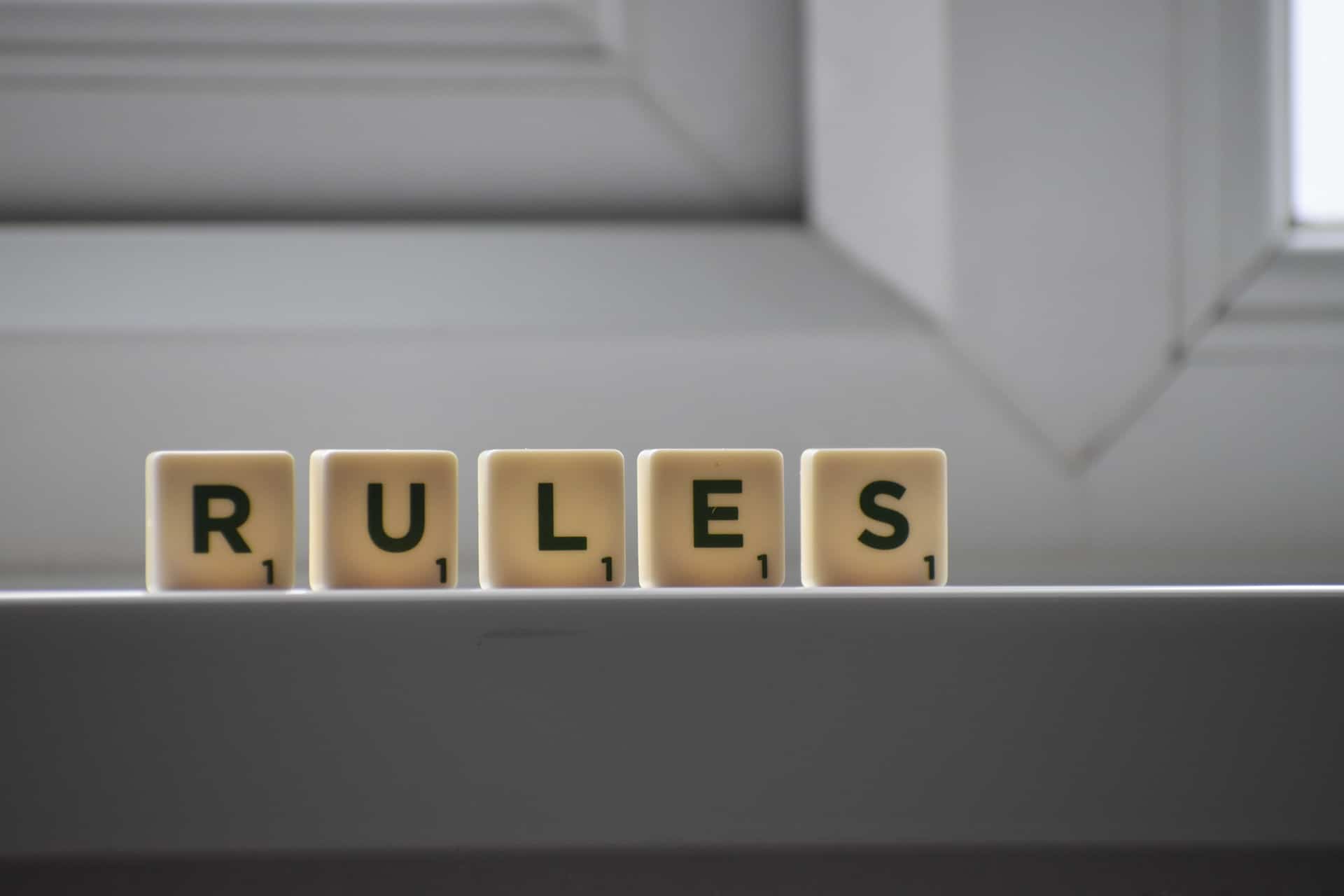Contents
Each homeowners association is governed by a set of documents that details specific policies, procedures, rules, and expectations. These can vary from one association to the next depending on what the board and members have decided regarding their community. But whatever is agreed upon should be consistently enforced, and all homeowners should be held to the same standards.
This brings us to a concept known as HOA selective enforcement.
What is HOA Selective Enforcement?
Selective enforcement occurs when the association enforces specific rules for one homeowner, or a group of homeowners, but not the rest. Some members may get a violation notice for leaving their trashcans out too late, while others do not but have broken the same rule. This can cause members to feel as though they are being targeted or singled out. Essentially, HOA selective enforcement is a kind of institutionalized favoritism.
It is the board’s job to ensure that rules and regulations are fairly and uniformly enforced. Some associations leave it up to members to report violations that they see, while others send board members or the community manager out to periodically scan the community for violations. In either case, there should be consistency in how this process is carried out.

How Can Your HOA Enforce Rules Fairly?
It’s crucial for your HOA to enforce the rules, as outlined in your governing documents. Indeed, that’s one of the primary functions of the HOA board. Keep in mind that these rules and regulations exist for a reason: They help preserve property values, and also help keep the peace between homeowners within the HOA. Of course, if there are any rules that the community deems to be irrelevant or arbitrary, there are processes in place for the board of directors to amend their governing documents… but that’s a discussion for another day.
It’s likewise important for board members to keep in mind that homeowners rarely violate the rules purposefully. More often, it’s purely accidental, or may even result from a lack of clear understanding about what the HOA rules actually state.
Regardless, it’s essential for HOA board members to understand their own responsibilities to enforce the rules. Your governing documents should outline the procedures that board members have available for rules enforcement; if you need a refresher, check your cc rs.
The specific situations in which an HOA board enforces the rules can vary from one association to the next. For example, in one homeowners association, the rules may be enforced only when a violation is reported. This may happen if, say, a homeowner leaves their trashcan out for too long, or fails to park in the designated place, prompting their neighbor to write in with a complaint.
In another homeowners association, however, the property manager may conduct routine inspections, looking for rules violations within the association. For instance, a property manager may have a consistent schedule of patrolling the neighborhood, making note of any illicit outside decor, and issuing violation notices accordingly.
Either option is alright to enforce the rule of the HOA, just so long as it is applied consistently and without any hint of favoritism. And that brings us to the next question: What precautions can the HOA board put into place to ensure fair enforcement of the cc rs and other association rules?
How Can the HOA Prevent Selective Enforcement?
First and foremost, everyone should understand the association’s governing documents so they know what is and is not permissible. The board should provide these documents to every homeowner, and make them easily accessible via the association’s website or a digital file. Sending out regular reminders about some of the most common violations can help members maintain compliance.

- Document any violations and related actions. Keep written records of any notices that are sent out and actions that are taken. There should be a paper trail showing that proper procedures were followed, and to verify that certain individuals were not being singled out. The board can review its files to identify potential problems.
- Educate new homeowners and new board members. It is especially important to have a formal structure in place to make certain that new homeowners are brought up to speed regarding the governing documents and all the rules contained therein. Also, having a formal class or training program for new board members can be a significant way to familiarize them with all the ins and outs of the cc rs.
- Avoid exceptions. Making exceptions can quickly lead to trouble as members may feel that it is not fair that one person got an exception and they did not. It can be difficult for board members to reprimand members they are good friends with, but they need to remain neutral and treat everyone equally.
- Collaborate with a legal professional. The association’s legal team can review proposed rules and policies to verify that they are written in a clear manner and are fair and enforceable. They can also support the board in handling any complaints.
- Work with an HOA management company. A community manager can help the association put a fair enforcement policy in place, then confirm that it is carried out correctly. The board may decide that the manager should be the one overseeing compliance and sending out violations, rather than leaving it up to members to report issues they see.
These are just a few basic tips that your HOA board can use to enforce the rules of the homeowners association.

Why Do Some Homeowners Associations Struggle with HOA Rules Enforcement?
It may also be worth considering some of the specific reasons why homeowners associations struggle with selective enforcement.
For example, what if your homeowners association only bothers with enforcement when one of your homeowners reports a violation? While this isn’t necessarily a bad approach, you may wind up with a situation where one homeowner is penalized for having an especially attentive neighbor, while other homeowners get away with their violations simply because their neighbors don’t notice or don’t care.
There can also be selective enforcement that happens following turnover of board members. Perhaps a new board member feels like the previous board was too lax in enforcement of the cc rs. They may take it upon themselves to be a little more stringent… but from the perspective of your HOA residents, this may seem like an abrupt flip-flop.
And again, selective enforcement can happen simply as a result of a board member or a group of homeowners who don’t fully understand the governing documents. This is what makes education and communication so critical.
By knowing some of the most common reasons for selective enforcement, you can better prepare your HOA to enforce the rules fairly and consistently.
What Can a Homeowner Do About Selective Enforcement?
We have spent a lot of time considering the subject of selective enforcement from the vantage point of the HOA leadership. Now, let’s take just a moment to approach the question from the opposite angle: What can you do when you are a homeowner and you find yourself on the receiving end of selective enforcement?
If you ever receive a violation notice that you feel is unfair, the first step is always to go directly to the governing documents. Read the rule for yourself, and verify that it means what the HOA leadership says it means. In other words, take the time to determine whether you did, in fact, violate one of the HOA rules.
If you think you have been unfairly targeted with this violation notice, there are some additional steps you can take to push back against selective enforcement. Begin by drafting a letter to the HOA. Be polite and cordial in this letter, but also be very clear in outlining your case. For example, if you have been targeted for having too much holiday decor but you know other homes in the HOA that have even more decor, you can write to the HOA and say as much. Draw their attention to the fact that their enforcement of the rules seems to be inconsistent.
You might also want to include reasons why you believe you have been unfairly targeted… but be careful. You probably don’t want to come across like you’re paranoid, or like you are harboring a grudge against one of your neighbors. This may wind up making the problem worse. If you have questions or concerns as you draft this letter, it may even be worth it to meet with an attorney who specializes in matters related to the HOA.
Alternatively, you may consider attending the upcoming HOA meeting and raising the issue there. This can sometimes be a sound approach, especially if you prefer talking things out in person and believe you can do so without losing your cool. With that said, it’s important to let the board know in advance so that they can add the item to the meeting agenda. Without this advance notice, you may be told that your issue will have to wait until the following meeting.
Filing a Selective Enforcement Lawsuit
If none of the above strategies work, and you still feel as though you are on the receiving end of selective enforcement, then you may feel as though you have no recourse but to file a lawsuit. (Also be aware that, in some cases, your HOA may actually sue you in order to guarantee rules enforcement… but that’s a conversation for another day.)
If you do choose to bring a legal case against the HOA, you will naturally want to meet with an experienced HOA attorney. They will advise you on the best way to proceed, but generally, these suits tend to follow a similar argument: By enforcing their own rules unfairly or inconsistently, the HOA has effectively waived their right to enforce the rules at all.
You should be warned that, while these cases against the HOA can sometimes find success, they are very difficult to argue. The evidence threshold is simply too high. To successfully argue the case, you will need to produce ample evidence that other homeowners have violated the same rule you’ve been accused of violating, and they have done so without receiving any warnings or notices from the HOA. Again, this isn’t impossible, but it can certainly be challenging.
Another note: When you are being targeted with unfair or inconsistent enforcement of the rules, you will probably want to fight back purely on principle. That’s fine, but be advised that in many cases, it will simply be easier, faster, and less expensive to comply with the rules than it is to take your HOA to court.
Of course, the ultimate hope here is that you will follow the rules, your neighbors will follow the rules, the HOA will enforce the rules fairly, and none of this will ever become an issue! If it does become a problem, though, you have every right to know about these different options.

Hire an HOA Management Company to Help with Rule Enforcement
To conclude, we’ll note once more that one of the best ways to avoid issues with selective enforcement is to hire a property management company. An on-site manager will be skilled in inspecting homes, assessing potential violations, and ensuring the rules are enforced consistently. Additionally, your HOA manager can help with new member education.
If you are looking for an HOA manager in the Carolinas (Charlotte, Myrtle Beach areas), reach out to the team at Kuester Management Group. We boast decades of experience serving HOAs in a range of capacities, and we are happy to advise on matters related to selective enforcement. Reach out to us whenever you’re ready to chat.

